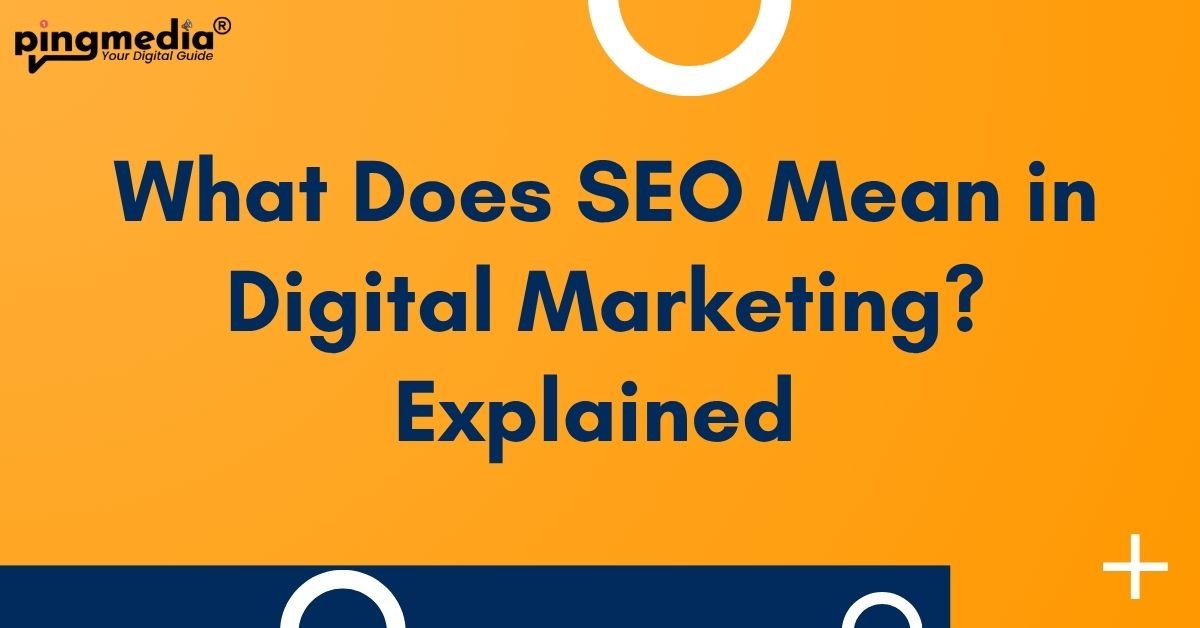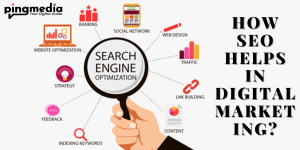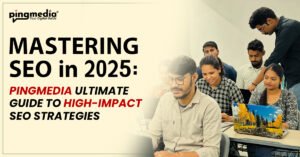Summary: What is SEO Mean in Digital Marketing? Explained Simply
SEO, or Search Engine Optimization, is the process of making your website more visible and attractive to search engines like Google. In digital marketing, SEO helps your website rank higher in search results, bringing in more free (organic) traffic, building trust, and supporting long-term business growth.
The article explains that SEO involves several key areas:
- On-page SEO: Optimizing your website’s content, keywords, and structure.
- Off-page SEO: Building authority through backlinks and social signals.
- Technical SEO: Ensuring your site is fast, mobile-friendly, and easy for search engines to crawl.
- Local SEO: Helping local businesses appear in searches for nearby services.
Good SEO is essential because most people only click on results from the first page of search engines. The article also highlights the importance of quality content, user experience, and measuring your results with analytics tools.
SEO is not a one-time task but an ongoing process that works best as part of a broader digital marketing strategy, including content marketing, social media, and email campaigns. By focusing on SEO best practices, businesses can attract more visitors, earn trust, and achieve sustainable online success.
If you’ve ever wondered how some websites always seem to show up at the top of Google’s search results, the answer is usually SEO. But what exactly is SEO, and why is it such a big deal in digital marketing? In this article, we’ll break down everything you need to know about SEO in plain, simple language—no jargon, just real-world explanations and tips.
1. What is SEO?
SEO stands for Search Engine Optimization. In simple terms, it’s the process of making your website more attractive to search engines like Google, Bing, and Yahoo. The better your SEO, the higher your website will appear in search results when someone looks for something related to your business or content.
Think of SEO as the digital equivalent of putting up a big, bright sign in a crowded marketplace. If your sign is clear and appealing, more people will notice you. If it’s hidden or hard to read, you’ll get lost in the crowd.
2. Why is SEO So Important in Digital Marketing?
Let’s face it: Most people don’t look past the first page of search results. If your website isn’t there, you’re missing out on a huge number of potential visitors, customers, or clients. Here’s why SEO matters:
- Visibility: Good SEO puts your site where people can find it.
- Trust: People trust search engines. If your site ranks high, you automatically seem more credible.
- Free Traffic: Unlike ads, SEO brings in visitors without you having to pay for every click.
- Long-Term Benefits: While ads stop working when you stop paying, good SEO can keep bringing in traffic for months or even years.
3. How Do Search Engines Work?
To understand SEO, it helps to know how search engines work. Here’s a simple breakdown:
- Crawling: Search engines send out bots (sometimes called spiders) to explore the web and find new or updated pages.
- Indexing: They store information about these pages in a giant database, called an index.
- Ranking: When someone does a search, the engine quickly sorts through its index to find the most relevant pages and lists them in order.
Your goal with SEO is to make sure your website is easy for these bots to find, understand, and rank highly.
4. The Main Parts of SEO
SEO isn’t just one thing—it’s a mix of different strategies and techniques. Here are the main areas you should know about:
A. On-Page SEO
This is all about what’s actually on your website.
- Keywords: These are the words and phrases people type into search engines. You want to use keywords that your audience is searching for, but in a natural way.
- Content: Your content should be helpful, original, and relevant to your audience.
- Meta Tags: These are short descriptions and titles that tell search engines what each page is about.
- Internal Links: Linking between pages on your own site helps search engines understand your site’s structure.
B. Off-Page SEO
This is about what happens outside your website.
- Backlinks: When other reputable sites link to yours, it’s like a vote of confidence in your content.
- Social Media: While not a direct ranking factor, being active on social media can help spread your content and attract links.
C. Technical SEO
This is the behind-the-scenes stuff that helps search engines crawl and index your site.
- Site Speed: Fast-loading sites keep visitors happy.
- Mobile-Friendliness: Your site should look good and work well on phones and tablets.
- Sitemaps and Robots.txt: These help search engines navigate your site more easily.
- Structured Data: This is code that helps search engines understand your content better.
D. Local SEO
If you have a local business, you want to show up when people search for services “near me.”
- Google Business Profile: Claiming and optimizing your business listing helps you appear in local searches and on Google Maps.
- Local Listings: Make sure your business info is consistent across directories.
5. SEO vs. SEM: What’s the Difference?
You might hear the term SEM, or Search Engine Marketing. SEM includes both SEO (free, organic results) and paid search ads (like Google Ads). Here’s a quick comparison:
| SEO (Organic) | SEM (Paid Ads) |
|---|---|
| Free traffic | You pay for clicks |
| Takes time to see results | Results are immediate |
| Lasts longer | Stops when you stop paying |
Most businesses use a mix of both, but SEO is the foundation for long-term growth.
6. Why Keywords Matter
Keywords are the backbone of SEO. They help search engines understand what your site is about and match it to what people are searching for.
How to Use Keywords:
- Do some research to find out what words your audience uses.
- Use these keywords naturally in your content, titles, and descriptions.
- Don’t overdo it—focus on making your content helpful and easy to read.
7. Content: The Heart of SEO
You’ve probably heard the phrase, “Content is king.” It’s true! High-quality, useful content is the most important part of SEO. If your content answers people’s questions and solves their problems, search engines will reward you with better rankings.
Tips for Great Content:
- Write for your audience, not just for search engines.
- Be clear, concise, and helpful.
- Use images, videos, and other media to make your content engaging.
- Update your content regularly to keep it fresh.
8. Building Authority with Backlinks
Backlinks are links from other websites to yours. The more high-quality backlinks you have, the more trustworthy your site appears to search engines.
How to Get Backlinks:
- Create content that people want to share.
- Reach out to other websites in your industry.
- Write guest posts for reputable blogs.
9. User Experience Matters
Google wants to show users the best possible results. That means your website needs to be easy to use, fast, and mobile-friendly.
Focus on:
- Fast loading times
- Easy navigation
- Clear calls to action (like “Contact Us” or “Buy Now”)
- A design that works well on all devices
10. Measuring SEO Success
You can’t improve what you don’t measure. Here are some key things to track:
- Organic Traffic: How many visitors come from search engines?
- Keyword Rankings: Where do you show up in search results?
- Bounce Rate: How many people leave your site after viewing just one page?
- Conversions: How many visitors take the action you want (buying, signing up, etc.)?
Tools like Google Analytics and Google Search Console can help you track your progress.
11. Common SEO Mistakes to Avoid
- Keyword Stuffing: Don’t cram too many keywords into your content.
- Ignoring Mobile Users: Make sure your site works on phones and tablets.
- Slow Site Speed: A slow site can hurt your rankings and annoy visitors.
- Duplicate Content: Don’t copy content from other sites or repeat the same content on multiple pages.
- Buying Links: This can get your site penalized by search engines.
12. The Future of SEO
SEO is always changing. Here are some trends to watch:
- AI and Machine Learning: Search engines are getting smarter about understanding what users want.
- Voice Search: More people are using voice assistants to search, so focus on natural, conversational language.
- Video Content: Videos are becoming more important for both users and search engines.
- E-E-A-T: Google is looking for content that shows Experience, Expertise, Authoritativeness, and Trustworthiness.
13. Getting Started with SEO: A Simple Checklist
- Know Your Audience: Who are you trying to reach?
- Research Keywords: What are they searching for?
- Optimize Your Website: Make sure it’s fast, mobile-friendly, and easy to navigate.
- Create Great Content: Answer your audience’s questions and solve their problems.
- Build Backlinks: Get other reputable sites to link to yours.
- Track Your Progress: Use analytics to see what’s working and what’s not.
14. SEO as Part of Your Digital Marketing Strategy
SEO works best when it’s part of a bigger plan that includes:
- Content Marketing: Regularly publishing helpful articles, videos, or guides.
- Social Media: Sharing your content and connecting with your audience.
- Email Marketing: Keeping in touch with your audience and driving them back to your site.
- Paid Ads: Using ads for quick results while your SEO builds over time.
Conclusion: SEO is the Foundation of Digital Marketing
SEO isn’t a magic trick or a one-time fix. It’s an ongoing process of making your website better for both people and search engines. When you get it right, you’ll attract more visitors, build trust, and grow your business—without having to pay for every click.
If you want your website to succeed in today’s digital world, SEO is where you start. It’s the key to being found, trusted, and chosen by your audience.
You may also Like : Best AI Trainer in Agra, Best AI Trainer in India
Follow us On : Facebook, Instagram, Twitter





